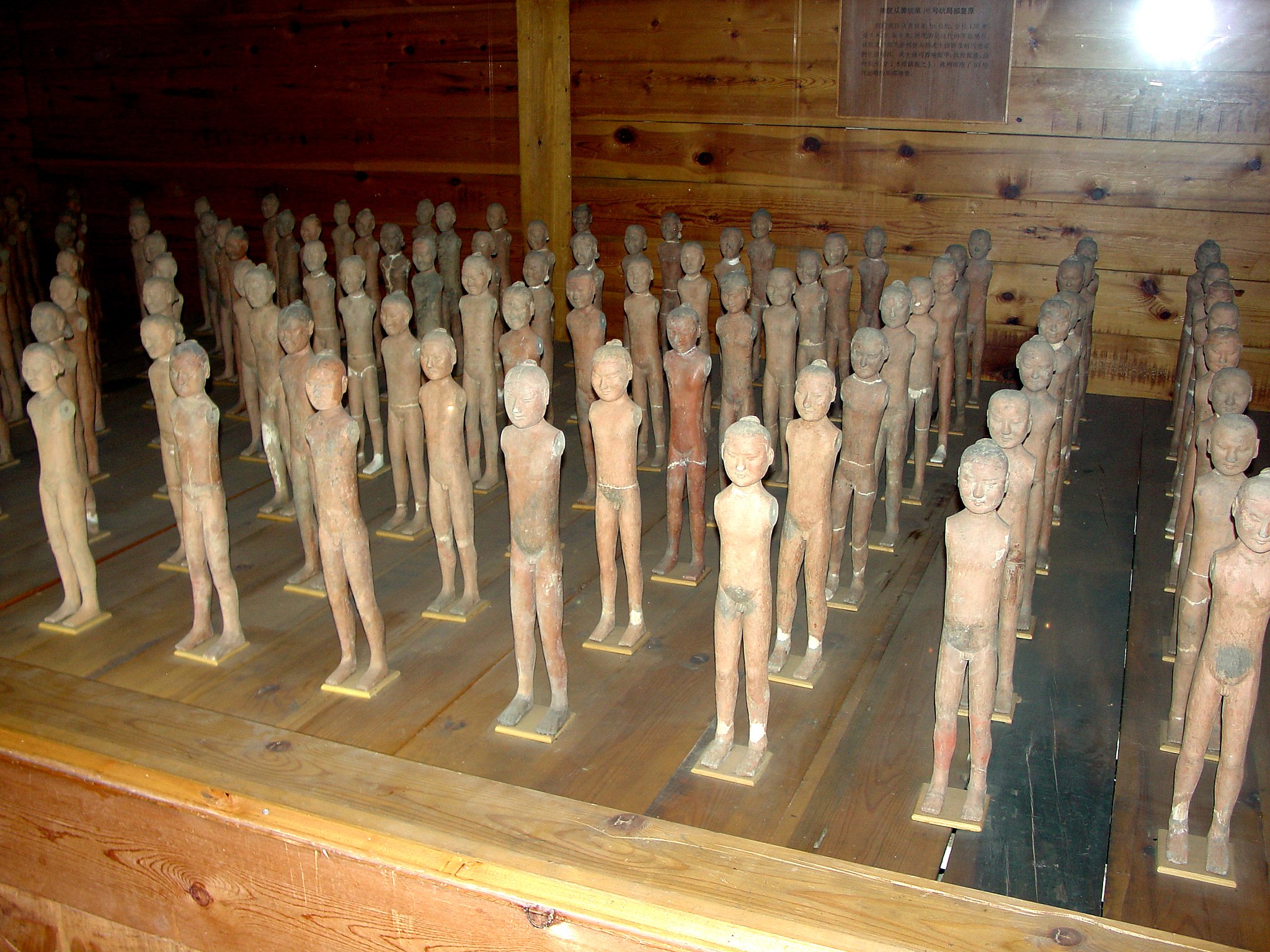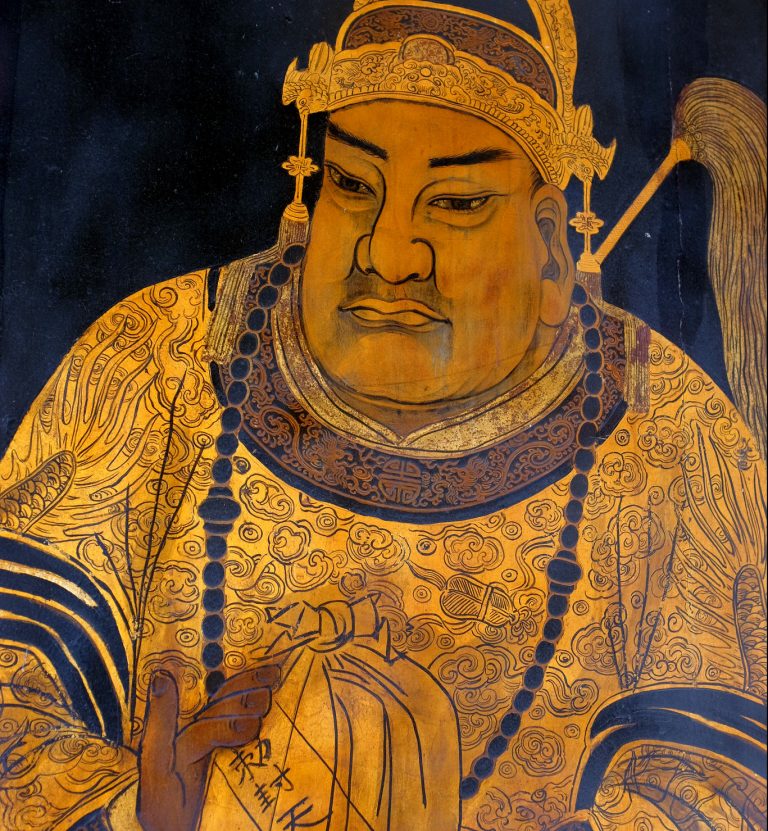The term eunuch comes from the ancient Greek word eunoukhos (εὐνοῦχος), meaning “guarding the bed.” The Imperial eunuchs of China were castrated males employed as guardians in the royal court; trusted not only because of their impotence, but also because they usually came from a lower class and did not have a strong allegiance to any political or familial powers. Eunuchs were sometimes castrated voluntarily as a condition of employment, but many times it was imposed as a punishment.
The most famous case of castration as punishment was that of Sima Qian, who had offended the emperor by defending a General charged with treason in 99 BCE. After his castration he retired and undertook writing his history. He is regarded as the father of historiography since he was the first to collect and analyze primary and secondary sources in order to chronicle China’s monumental history.
China’s eunuch system was deeply ingrained in imperial culture and lasted over two dozen dynasties. While there were many excellent eunuchs who served the emperor, there were also many wicked eunuchs who enriched themselves and strengthened their authority at the expense of the empire. Some eunuchs became infamous dictators in China, with more power than the emperor. Many became notorious for dominating the Forbidden City.
By the end of the Ming Dynasty in the mid-17th Century, some 70,000 eunuchs were employed to serve the emperor. They came from many different regions, from Mongolia and Vietnam, to Cambodia and Okinawa. The Imperial court was very powerful during this period. Families willingly had their sons castrated to work as eunuchs in the court.
The castration process had a 2 percent chance of failure, resulting a horrible death for the patient. If the operation was a success the new eunuch took 100 days off for the wound to heal entirely. The sensitivity and loss of urinary control, however, would only wear off over the course of a year.
Unique service
Success
You are now signed up for our newsletter
Success
Check your email to complete sign up
Because eunuchs were the only men guaranteed not to impregnate the emperor’s concubines, they were permitted exclusive access to the palace’s inner apartments and were considered trusty and lowly servants serving as a neutral influence to balance out conflicts between the emperor and Empresses who often conspired to elevate their children to positions of power.
The Empress’s authority lasted only as long as her husband, the emperor because an emperor had to marry outside his family. This abrupt end to a family’s rule sparked numerous bitter battles. The Empress’s and the young heir’s families were moderated by eunuchs. The Eunuchs, therefore, had access to information and intimate interaction with the royal family that even the highest civil or military officials would not have had.
The emperor and his family had the authority to employ eunuchs, but the legislation placed them under the control of the Minister of the Household. It was illegal for them to leave the capital unless they had special permission, to get involved in politics or possess noble status. So the emperors were less concerned about eunuchs attaining power than military officers, usurpers, and dynastic founders.
A little-known detail is that the eunuch chief kept the connubial registration. Each concubine’s name was recorded on ivory tablets that were kept in a holder near the emperor’s bedside table. His Majesty would choose the one he desired and entrust it to the top eunuch, who had enough time to plan and intrigue, as did the majority of them were eager to bear the emperor a son, thereby elevating her to the rank of the imperial mother.

Zhao Gao
The eunuch Zhao Gao is considered to have been a primary factor in the collapse of the Qin Kingdom of the First Emperor Qin Shi Huang, who is credited for uniting the seven warring nations.
Emperor Qin Shi Huang named his eldest son, Fusu, as his successor just before his death. Zhao Gao convinced Li Si, the prime minister, to alter the will and enthrone his own son Huhai. Zhao Gao had the most trusted official, Meng Tian, unjustly charged and killed, so there was no one left to oppose him at court.
When the Qin army fell to Han Yu and Liu Bang’s soldiers, Zhao Gao didn’t tell Huhai that the Dynasty was in trouble, and the emperor only found out when enemy forces landed at Xianyang.
Huhai was blamed and Zhao Gao had his men kill him. He then sought to seize the emperor’s jade tablet and take the throne. In desperation, he sought to puppet Ziying, a member of the Imperial family, but Ziying refused to be manipulated. Zhao was eventually slain by Han Dan and other anti-Zhao Gao officials.
Zhao Gao once performed an outlandish deed to prove his might. He brought Emperor Huhai a deer and said it was a magnificent steed. Huhai corrected him, but in order to curry favor with Zhao Gao, many courtiers agreed that it was a fantastic horse.
This event gave rise to the Chinese proverb zhi lu wei ma (指鹿為馬, to make deer a horse), which is still used today. The saying refers to the deliberate distortion of facts, typically for malicious gain, mischief, or demonstration of power. The Japanese word for “idiot,” baka, literally means “horse-deer” and is derived from the Chinese saying.
The system of eunuchs prevailed until Emperor Piyu abdicated on 12 February 1912. Reginald Johnston, the Imperial tutor, thought they were part of a group that was more concerned with their own survival than the emperor’s, and they were of little use to him. Under Johnston’s influence, Pǔyí did away with the eunuch system completely in 1923. Sun Yaoting, the last eunuch, died in 1996 at the age of 93 at a Beijing temple.















